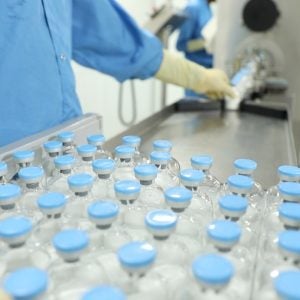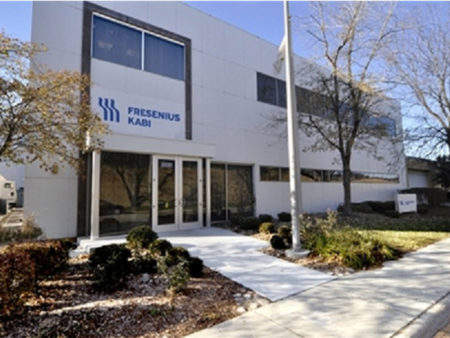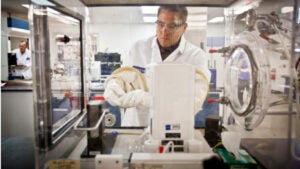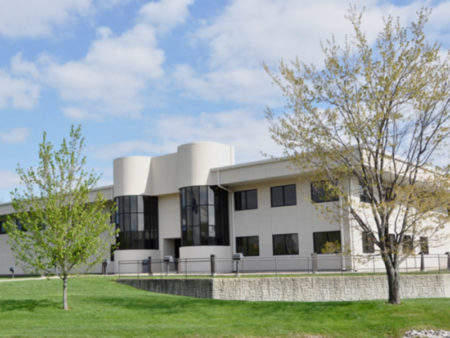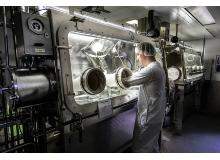Lyophilization Center of Excellence

Optimising lyophilisation cycle times and improving stability for complex injectables is a critical component of parenteral product development.
With this understanding, BioPharma Solutions established the Lyophilization Center of Excellence (LCOE), a resource centre to focus on the development of high-quality freeze-drying. Distinguished scientists and educators Dr Steven Nail and Wendy Saffel-Clemmer lead BioPharma’s team of scientists to assist with modifications and formulas to maximise the potential of lyophilised products.
Staffed by 18 scientists with an average experience of 18 years, the centre allows clients to feel confident knowing their molecule is in goods hands.
Baxter’s approach to freeze-dry cycle development products advantages over traditional cycle development, including:
- Reduces the amount of active pharmaceutical ingredient (API) required for development
- Reduces the time required for development
- Use of tunable diode laser absorption spectroscopy (TDLAS) allows for rapid determination of Kv and Rp
- Remaining definition of design space requires mathematical calculations
- Includes edges of failure of equipment and product
- Helps to ensure pharmaceutically acceptable product
- Facilitates handling of deviations
- Provides experimentally determined residual moisture specification
- Identifies the fastest possible robust cycle
- Reduces manufacturing cost
BioPharma Solutions’ facility in Bloomington, Indiana, is home to the LCOE, which is staffed by scientists with expertise in parenteral product formulation, process and analytical development.
Lyophilisation tools and techniques include:
- Six research freeze-dryers
- MicroFD freeze dryer
- Differential scanning calorimetry (DSC) (two systems, one nano)
- Thermogravimetric analysis (TGA)
- Freeze-dry microscopy
- Karl Fischer (KF), Near-Infrared (NIR) and Vapor Pro for moisture analysis
- Three tunable diode laser absorption spectrometers
- Thermal activity monitor (TAM)
- X-ray powder diffraction (XRPD)
The LCOE offers:
- Targeted lab-to-product correlation for optimum manufacturing and cost efficiencies
- Six research freeze-dryers for development of freeze-dry cycles for future clinical manufacture
- Robotic loading / unloading of lyophilisers to minimise handling and microbial exposure
- State-of-the-art instrumentation for the detection of aggression and other physical stability issues
- Proven scientific approach to cycle development versus traditional trial-and-error techniques
- State-of-the-art analytical methodologies for protein biophysical characterisation and measurement of protein aggregates
- Expertise in capillary electrophoresis, including capillary isoelectric focusing (cIEF) and capillary gel electrophoresis
Quick facts about the LCOE staff:
- Eighteen scientists work at the LCOE
- Each has an average industry experience of 18 years
- Industry-recognised educators, authors and speakers on lyophilisation are represented
- Collaborative and customer-focused solutions
- Research collaborations and members of the university or industry consortia


